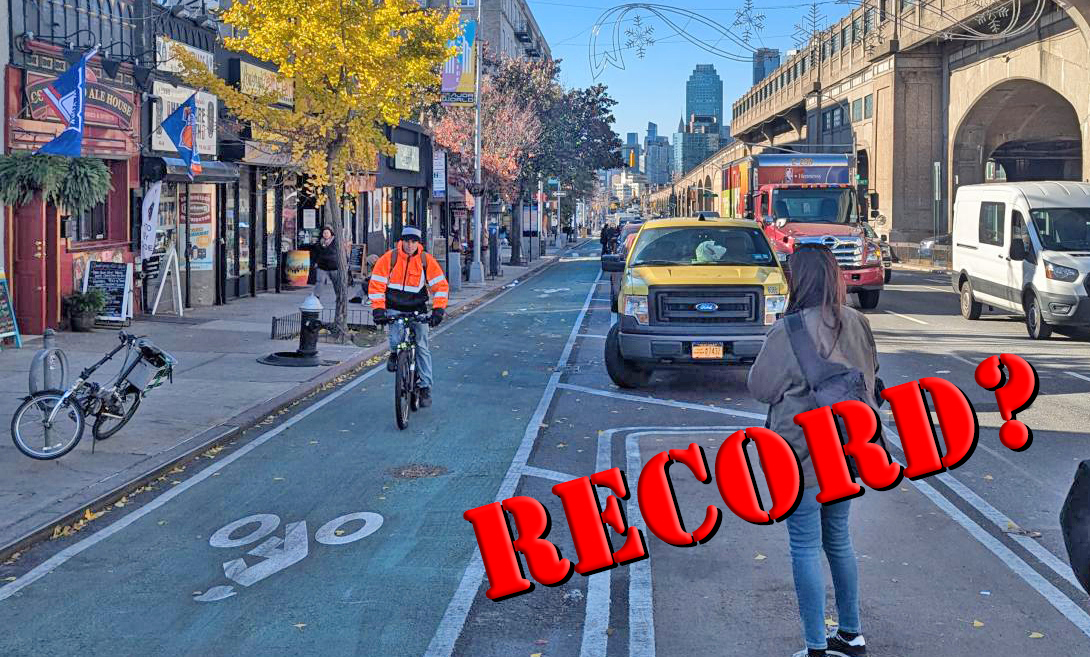Earlier this week, there was good news for transit riders: MTA tax receipts came in higher than expected, providing up to $40 million in additional revenue this year. While the MTA isn't scheduled to update its budget until summer, there is already talk of using the money to restore cuts or expand service.

But the additional tax revenue is a happy accident. State policy didn't change; the MTA simply reaped the benefits of an improving economy. In fact, Andrew Cuomo is still using the MTA as a piggy bank: the state budget now headed to his desk also includes a sneaky $20 million transit raid courtesy of the governor himself, which hasn't made as many headlines.
The raid, first uncovered by the Tri-State Transportation Campaign, works like this: The governor's executive budget declared $20 million of MTA operating funds "surplus" without explanation, then used it to cover holes in the state budget that would have otherwise been filled by the state's general fund.
At a joint budget hearing in January, Assembly Member James Brennan asked MTA interim executive director Tom Prendergast how this happened. "I don’t know," Prendergast replied.
Despite Brennan's questioning, neither the Senate nor Assembly fought to have the raid removed from the budget. As a result, it's survived and now awaits the signature of the man who proposed it.
Although the budget raid takes away "only" half of what the extra tax receipts provide, that's still $20 million that won't be available to restore service or fix up decrepit stations. For comparison, major service cuts in 2010 saved the agency $93 million.
The significance of the raid also goes beyond the dollar amounts in this year's budget. Budget raids in the recent past were far larger, taking hundreds of millions of dollars in 2009, 2010 and 2011. This year's budget shows that Cuomo, who gutted the transit lockbox bill, still wants the ability to quietly rob straphangers at his disposal.





